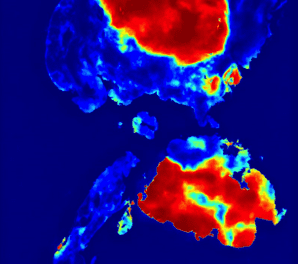SEngine Precision Medicine announces the publication of a new case report showing a patient’s remarkable response to an off-label therapy identified by the company’s PARIS Test. Despite standard-of-care chemotherapy and two surgeries, the patient’s low-grade serous ovarian cancer (LGSOC) was progressing, and her prognosis was terminal. But by testing a range of therapies in organoids grown from the patient’s own tumor sample, SEngine’s PARIS Test identified as a top candidate ibrutinib, a BTK inhibitor approved only for certain leukemias and lymphomas and with no prior clinical evidence of efficacy in ovarian cancer. Ibrutinib monotherapy led to cessation of opioid-based pain management, the patient’s exit from hospice care, and 15 months of stable disease.
Further Reading: SEngine Precision Medicine Gets New York CLEP Approval for Tumor Test
The PARIS Test, a unique Clinical Laboratory Improvement Amendments (CLIA)-certified drug sensitivity assay, consists of 3D organoids derived from a patient’s tumor. Because no two cancers are identical, SEngine screens an array of drugs from a library of 240 small molecule drugs in the organoids, and develops a personalized report that scores therapies to maximize efficacy and minimize toxicity.
The patient has since continued treatment with two additional PARIS Test-prioritized therapies that are approved only for certain lung cancers. In total, her personalized treatment course has led to over two years of stable disease, compared with a median progression-free survival of 7.2 months for patients with recurrent LGSOC. The paper was published in npj Precision Oncology, by researchers from SEngine, University of Washington, and Fred Hutchinson Cancer Center.
“We have been overjoyed by the progress this patient has made over more than two years following a treatment course recommended by the PARIS Test,” says Dr Carla Grandori, CEO of SEngine. “We first received a sample of her tumor following an unsuccessful surgery to remove a gastrointestinal obstruction, at a time when she was unable to eat and in hospice care. Her remarkable turnaround reaffirms the power of our approach, and further, helped us identify a cohort of ovarian cancer patients likely to respond to similar precision treatments.”
Featured image: stock photo via Dreamstime





